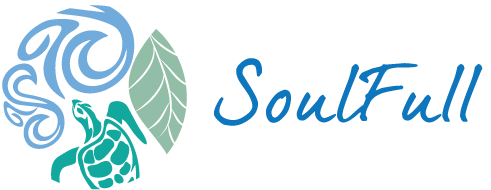 We’ve all heard the body referred to as a temple. Many cherish this metaphor, and if it speaks to you, then by all means hold onto it. But may I be honest about what that image evokes for me? An empty, inanimate shell; hollow unless the spirit visits.
We’ve all heard the body referred to as a temple. Many cherish this metaphor, and if it speaks to you, then by all means hold onto it. But may I be honest about what that image evokes for me? An empty, inanimate shell; hollow unless the spirit visits.
Instead, I foster a fairly radical concept…
Your body is not a shell. It’s an animal.
Your body is a mythic mammal. A warm, living, breathing, heart-beating, eating, shedding, moving, sleeping creature. It is alive. It had a wild and wet birth into this world. It gets restless when cooped up, feels the call of hunger, and knows the drive for connection. When it senses danger, it freezes like a deer in headlights, lunges for battle, or runs like hell.
This body of yours arrived threaded through and through with mammalian instinct. It relaxes under kind touch. It intuits information, “gut knowing,” that zips right past the thinking mind. It gets tense and wound up when resources like food (or money to buy food) are scarce. It often likes to sleep snuggled against other soft, warm mammals.
An example from my living room
While working on the launch of SoulFull, I put in some long hours at the computer—which my cats (and my body) were not thrilled about. They became whiny and fretful (both the cats and my body), and their scratching manners regressed a bit (here I’m talking mainly about the cats).
When I came home one day to find that the arm of my sofa had threads three inches long pulled ever so delicately out of its weave, I understood that this was less of a mishap and more of a statement. After some very pointed vocalizations (“You have three scratching posts”) and gesticulations (emphasizing the exact coordinates of each scratching post), I took a deep breath. After all, I knew what this was. The instinct for attention and connection, unmet.
Connecting more often with my pets made them (and me) much happier campers. And though the couch lost some equity that day, we all agree that it’s still a lovely place to be cradled, comforted, and restored.
Bringing it home
When the body is well tended to, we usually feel its balance. When neglected, the body gets stressed, chaotic, depressed or angry—and its drives become howling need.
This need may be a response to long hours at the desk, or a new diet dictated by the pages of a magazine. The mind may have very earnest reasons for this unilateral policymaking, but the body just sits there, looking up at us with a cocked ear, quizzical eyes…and still-unmet needs.
The poet Mary Oliver uses this lovely language: “Let the soft animal of your body love what it loves.” Yes. When I think of my body as the soft animal that it, in fact, is, then caring for it becomes a devotion rather than a chore. Listening to it becomes communion, a relationship.
We live in a society that has so much junk built up around the idea of the body (Get thin! Wear this! Don’t eat that!), that we can live whole days, months, years, without a felt connection to the actual reality of our bodies.
Can I invite you to join me for a minute in a simple check-in with our bodies, our beautiful animals? Notice how your body feels. Hungry? Tired? Content? Notice what it needs. A glass of water? To move around? A quick trip to the restroom? (You wouldn’t believe how many of us defer this very basic, um, function until it’s absolutely necessary!)
Let’s do something loving for our faithful bodies. Let’s meet a simple need. Yes, right now! Something small. I think we’ll feel better if we do.



The information and opinions on this blog are not medical or mental health advice, and should not be used as a substitute for consultation with your healthcare professional.